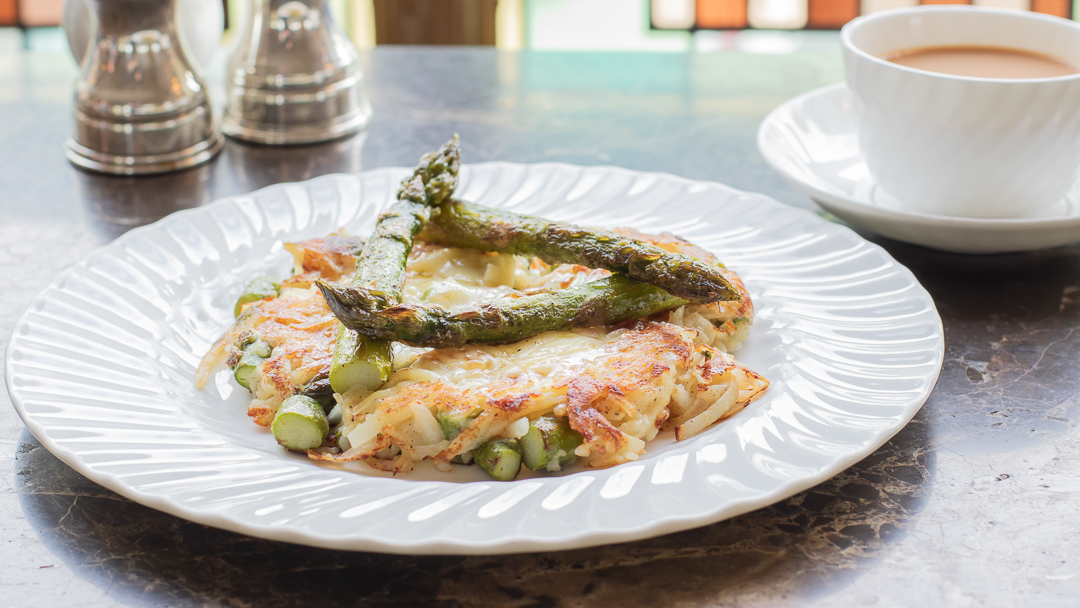Down at the farm: learning the secrets of asparagus

A few miles from Richard and Ronda Morritt’s farm, I see a reassuring signpost. ‘Fresh asparagus for sale’ it reads. I’m relieved. Despite the claims of my sat-nav, I had begun to doubt whether I was in the right place. As picturesque as this corner of North Yorkshire is, there’s a reason why it’s called Sand Hutton. Surely such dry soil wouldn’t yield such a luxurious, succulent crop as asparagus?
“Sandy soil is the best soil for it”, explains Richard as he leads me to one of several asparagus fields on his farm. “Free draining, deep sandy soil – it warms up quickly and it drains quickly.”
“Asparagus hates to have its feet wet so if you have clay soil it’s too wet for the asparagus to grow”, adds Ronda as she expertly fends off two excitable dogs. “We never water it – not in the cutting season – because it slows it down.”
Asparagus is famous for the speed at which it grows during its short season. Some say you can hear it growing – a creak or squeak as the spears thrust up toward the light. I can’t hear anything, but it’s a gusty day, so perhaps the wind drowns out the sound. Beneath the surface of the soil are spidery ‘crowns’ – the root network of the spears. Asparagus isn’t harvested for a couple of years after its planted to allow time for a strong root stock to establish.
Richard and Ronda show me how they cut the asparagus, moving briskly along the ridged field and stopping every few steps to lop off a spear with a knife.
“I was looking at the asparagus for height”, says Richard. “You try to get the maximum length possible, because that gives you the best yield, but before the tip of the spear opens out.” He kneels and takes a spear in his hand: “You see the tip of that spear is tightly closed – that’s perfect.”
Part of the attraction of asparagus is its short season; it doesn’t freeze well so to enjoy it at its best it has to be eaten within a narrow two month window. Traditionally the season lasts from around the last week in April to 21st June – the longest day of the year. The start of the season can vary by several weeks, depending on how kind the weather is being. It’s vital that its then left to develop into fern during the summer so that the carbohydrates can get back into the root stores for the following season.
Richard’s family has been at the farm for around 40 years and he started running it on his own in 1992 when his Dad died. When they took it on it was a traditional mixed arable farm with beef cattle, wheat barley, sugar beet and potatoes. But the sandy soil doesn’t lend itself to cereal crops, so in 1997 Richard and Ronda switched to growing asparagus, strawberries and gooseberries – all of which are supplied to Bettys.
As I leave I pass a car on the long, gravelly driveway to the farm. An asparagus fan on their way to buy some of the best spears in Yorkshire.
We’ve devised some special seasonal menu items for our Café Tea Rooms to showcase Richard and Ronda’s wonderful asparagus. Check the specials board for further information


